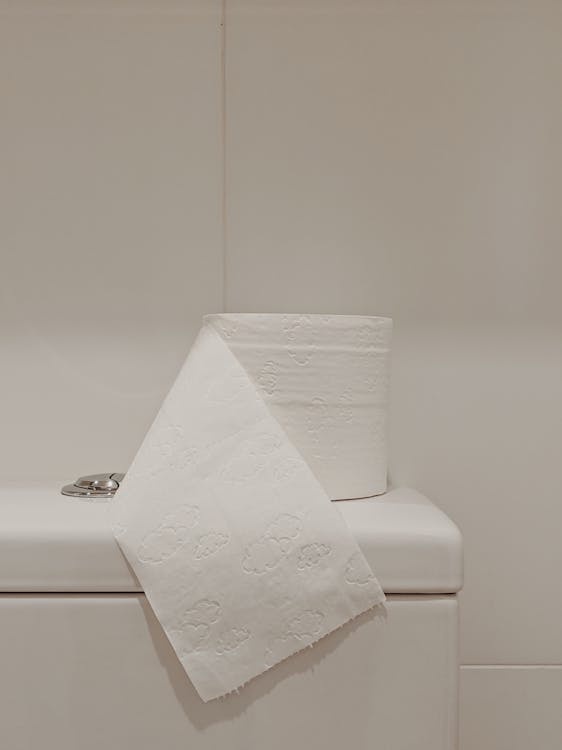Maintaining a perfect plumbing system is crucial for the smooth operation of any household. However, many homeowners inadvertently contribute to plumbing issues by flushing non-flushable items down their toilets.
This is a common but detrimental practice that can have severe consequences for plumbing systems and the environment.
Flushing non-flushable items down toilets not only leads to clogs, sewer backups, and environmental damage but also poses risks to health and safety.
Experience a hassle-free solution for clogged toilets with Wasden Plumbing! Their expert team has been offering quick and reliable toilet repair services since 2014.
What Are The Common Non-Flushable Items?
Non-flushable items are materials that should not be flushed down toilets or drains due to their inability to break down easily in water or their potential to cause clogs and blockages in plumbing systems.
Some common non-flushable items include:
1. Wipes:
Baby wipes, disinfecting wipes, makeup wipes, and cleaning wipes are non-biodegradable and can clog pipes.

2. Sanitary Products:
Tampons, pads, and panty liners are designed to absorb moisture and do not break down quickly in water.
3. Paper Towels:
Unlike toilet paper, paper towels are more durable and can cause clogs in pipes.
4. Dental Floss:
Dental floss is thin but strong and can wrap around pipes, contributing to blockages.
5. Cotton Balls and Swabs:
These items can absorb water and expand, leading to pipe obstruction.
6. Food Waste:
Large quantities of food scraps or grease can solidify in pipes, causing blockages over time.
7. Medications:
Flushing medications can contaminate water sources and harm aquatic life.
The Plumbing Consequences of Flushing Non-Flushable Items
1. Clogs and Blockages
Non-flushable items like wipes, sanitary products, and paper towels do not break down easily in water. As a result, they can accumulate in pipes, causing clogs and blockages that impede the flow of wastewater.

2. Slow Drains
Even if non-flushable items don't completely block pipes, they can still contribute to slow drains. Partial blockages can restrict water flow, leading to backups and potential overflow in sinks, showers, and toilets.
3. Sewer Backups
Perhaps the most serious consequence is sewer backups. When non-flushable items clog sewer lines, sewage can back up into homes, causing extensive damage, unpleasant odors, and health hazards.
4. Increased Maintenance Costs:
Dealing with clogs and pipe obstructions due to non-flushable items requires plumbing services, which can be expensive. Regular maintenance and preventive measures are necessary to avoid recurring issues.
Environmental ImpactOf Flushing Non-Flushable Items
1. Water Pollution
Non-biodegradable items contribute to water pollution when they enter waterways through sewer systems. These items can release harmful chemicals and pollutants, disrupting ecosystems and harming aquatic life.
2. Landfill Overflow
Items that are flushed but not biodegradable end up in landfills, where they take up space and contribute to landfill overflow. This can lead to environmental contamination and increased greenhouse gas emissions.

What To Do When Toilet Is Having Issues Due To Flushing Non-Flushable Items?
When a toilet is experiencing issues due to flushing non-flushable items, it's essential to take immediate action to prevent further damage and restore functionality.
Here are the steps to follow:
1. Stop Flushing:
If you suspect that non-flushable items have caused a clog or blockage, stop flushing the toilet immediately. Continued flushing can worsen the problem and lead to overflow or backups.
2. Assess the Situation:
Try to assess the extent of the issue. Check if water is draining slowly, if there are unusual sounds or odors, or if there's visible water backup in the bowl or on the floor around the toilet.
3. Use a Plunger:
For minor clogs, a plunger can often clear the obstruction. Use a flange or cup plunger specifically designed for toilets. Follow proper plunging techniques by creating a tight seal around the drain and applying firm, steady pressure.
4. Avoid Chemical Drain Cleaners:
Refrain from using chemical drain cleaners, especially on toilets. These products can be harsh, damaging pipes and fixtures, and may not effectively dissolve non-biodegradable items.
5. Call a Professional Plumber:
If plunging doesn't resolve the issue or if you suspect a more severe blockage, it's best to contact a licensed plumber. Plumbers have specialized tools like augers, snakes, and cameras to locate and clear stubborn clogs without causing additional damage.
6. Provide Information:
Inform the plumber about the suspected cause of the problem, such as flushing non-flushable items. This information helps them assess the situation more accurately and choose the appropriate tools and methods for clearing the blockage.
7. Use Flushable Alternatives
Opt for products that are specifically labeled as flushable and safe for plumbing systems. These products are designed to break down quickly and reduce the risk of clogs and blockages.
8. Regular Plumbing Inspections
Schedule regular plumbing inspections by qualified professionals to detect and address potential issues before they escalate. Professional plumbers can identify early signs of clogs or damage and recommend appropriate solutions.

9. Prevent Future Incidents:
Educate household members about what should and shouldn't be flushed down the toilet. Use signage if necessary to remind everyone to dispose of non-flushable items, such as wipes, paper towels, hygiene products, and cotton swabs, in the trash.
Professional Clogged Toilet Fixes And Repair Services By Wasden Plumbing
Don't let a clogged toilet disrupt your day. Trust Wasden Plumbing Services for professional clogged toilet fixes and repair services.
Their experienced plumbers use advanced techniques to diagnose and resolve issues efficiently, ensuring your plumbing system runs smoothly. They have been offering top-notch plumbing services in Rowlett and Rockwall, TX, for the last 20 years.
Contact them now for reliable solutions and peace of mind!


No comments yet